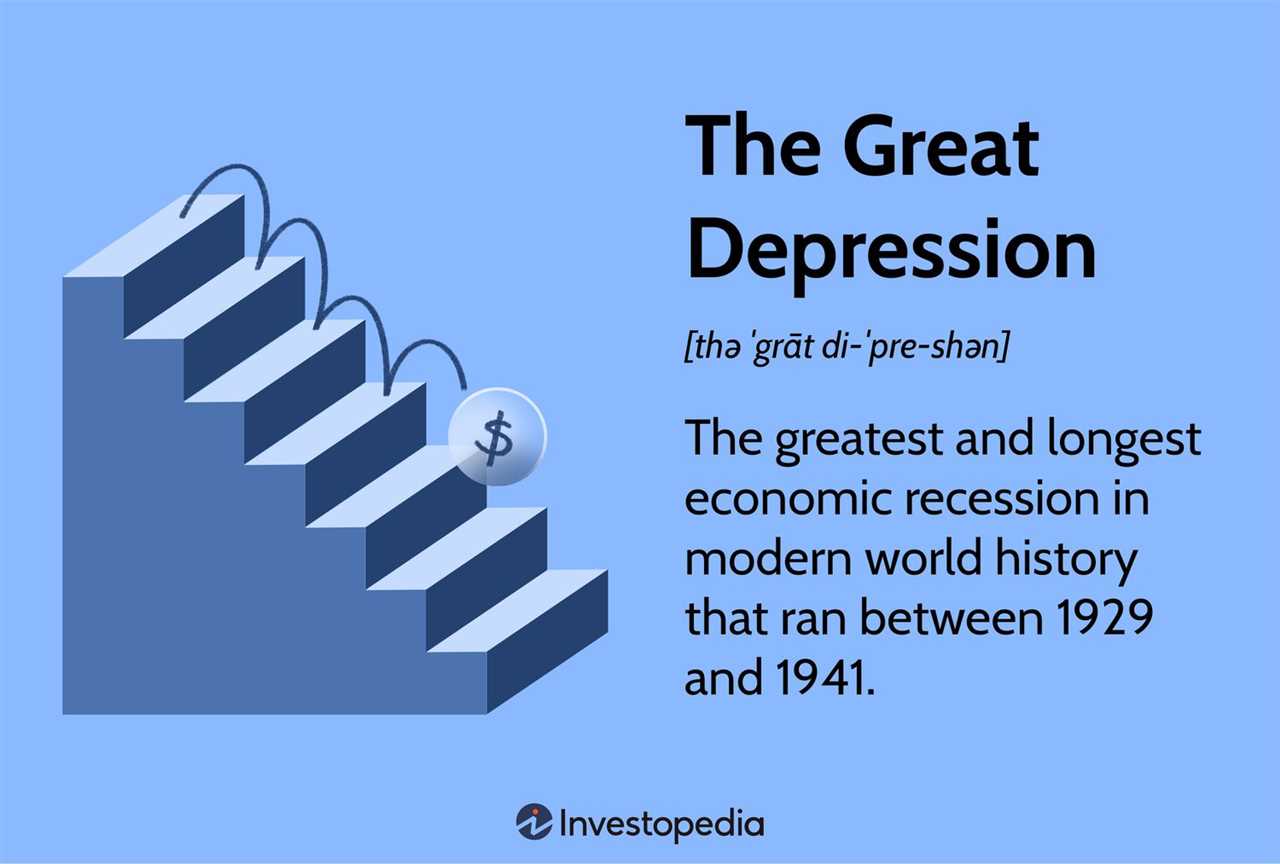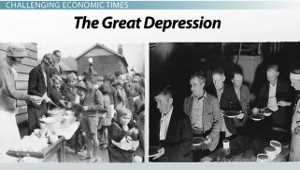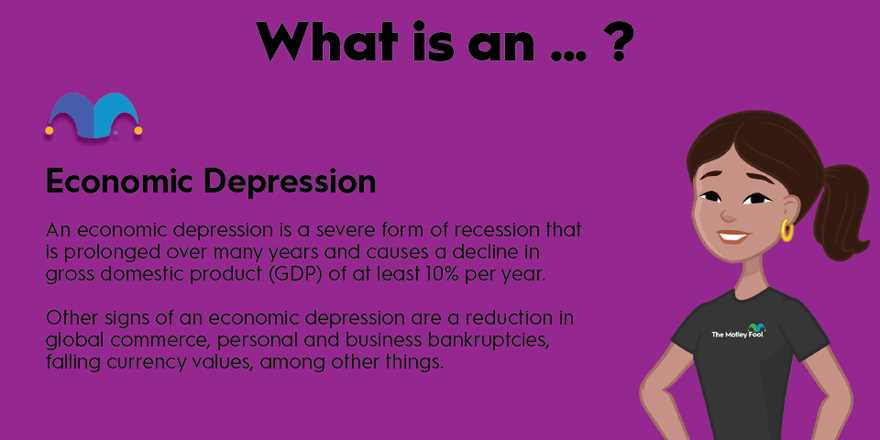Exploring the Causes and Effects of Economic Depression

Economic depression is a severe and prolonged downturn in economic activity characterized by a significant decline in gross domestic product (GDP), high unemployment rates, and a general decline in business activity. It is a period of economic decline that lasts for several years and has a profound impact on individuals, businesses, and society as a whole.
There are several causes of economic depression, and they can vary from one instance to another. One common cause is a financial crisis, such as a stock market crash or a banking crisis. These events can lead to a loss of confidence in the financial system, causing businesses and consumers to reduce their spending and investment, which in turn leads to a decline in economic activity.
Another cause of economic depression is a decrease in consumer spending. When consumers are uncertain about the future, they tend to save more and spend less. This decrease in consumer spending can lead to a decrease in business revenue, which can result in layoffs and a further decline in consumer spending, creating a vicious cycle of economic decline.
Government policies can also contribute to economic depression. For example, if the government implements restrictive monetary or fiscal policies, such as raising interest rates or cutting government spending, it can reduce economic activity and lead to a depression. Similarly, trade policies, such as tariffs or trade restrictions, can disrupt international trade and negatively impact the economy.
The effects of economic depression are far-reaching and can have a profound impact on individuals, businesses, and society. High unemployment rates are a common consequence of economic depression, as businesses reduce their workforce to cut costs. This can lead to financial hardship for individuals and families, as well as a decrease in consumer spending, which further exacerbates the economic decline.
Real-Life Example of Economic Depression

One of the most well-known and impactful examples of economic depression in history is the Great Depression, which occurred in the early 1930s. The Great Depression was a severe worldwide economic downturn that lasted for about a decade and had devastating effects on individuals, families, and societies.
During the Great Depression, stock markets crashed, banks failed, and unemployment rates soared. Many businesses closed down, leading to widespread poverty and hardship. People lost their homes, their savings, and their jobs. The effects of the Great Depression were felt not only in the United States but also in countries around the world.
The Great Depression had a profound impact on society. It led to a significant increase in poverty, homelessness, and hunger. Many people were forced to rely on government assistance and charitable organizations for basic necessities. The depression also had a negative impact on mental health, with rates of depression and suicide increasing during this time.
It took several years for the global economy to recover from the Great Depression. The effects of this economic downturn were long-lasting and shaped the economic and social landscape for years to come. The lessons learned from the Great Depression continue to inform economic policies and practices today.
| Key Points: |
|---|
| – The Great Depression was a severe worldwide economic downturn that lasted for about a decade. |
| – Stock markets crashed, banks failed, and unemployment rates soared during the Great Depression. |
| – The Great Depression had a profound impact on society, leading to increased poverty and hardship. |
| – It took several years for the global economy to recover from the Great Depression. |
Analyzing the Great Depression and Its Impact on Society

Causes of the Great Depression
Effects of the Great Depression

The Great Depression also had a significant impact on mental health. The stress and uncertainty of the economic crisis took a toll on people’s well-being, leading to increased rates of depression, anxiety, and suicide.
Lasting Impact on Society
The Great Depression had a lasting impact on society, leading to significant changes in government policies and economic practices. It prompted the implementation of social welfare programs to provide relief to those in need and to regulate the financial industry to prevent future crises.
The New Deal, introduced by President Franklin D. Roosevelt, aimed to stimulate the economy and provide employment opportunities through various public works projects. It also established programs such as Social Security and unemployment insurance to provide a safety net for the most vulnerable members of society.
The Great Depression also had a profound cultural impact. It influenced art, literature, and music, with many artists and writers reflecting the hardships and struggles of the era in their work. The Dust Bowl, a severe drought and dust storm that affected the Great Plains, became a symbol of the environmental devastation caused by the economic crisis.

Emily Bibb simplifies finance through bestselling books and articles, bridging complex concepts for everyday understanding. Engaging audiences via social media, she shares insights for financial success. Active in seminars and philanthropy, Bibb aims to create a more financially informed society, driven by her passion for empowering others.
